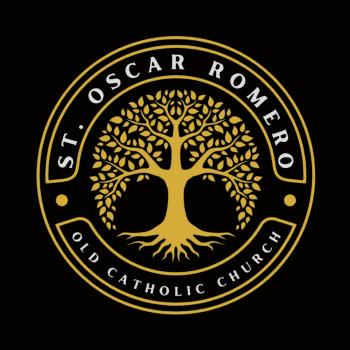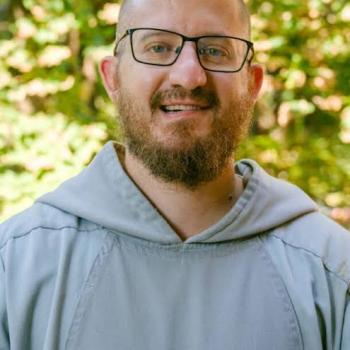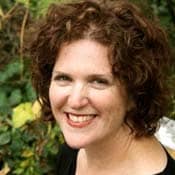 The great mystics teach us that the movement of genuine spirituality occurs as we move from dualistic thinking to union with God and consequently, union with all that God loves. That movement is a mystery. It is both intention and surprise. It is something we enter into and something that enters us. God is always doing God's work, but we do have choices to open ourselves up to that grace or to live apart from it.
The great mystics teach us that the movement of genuine spirituality occurs as we move from dualistic thinking to union with God and consequently, union with all that God loves. That movement is a mystery. It is both intention and surprise. It is something we enter into and something that enters us. God is always doing God's work, but we do have choices to open ourselves up to that grace or to live apart from it.
The polarization of our world draws us away from this movement and hides it from view. We live in a nation of Left/Right, Republican/Democrat, Enlightened/Unenlightened, Blue Collar/White Collar. The rhetoric in the media has certainly proved this out. In the face of a national tragedy, people have run to their sides and pointed fingers across the lines. It would be a nice to think that the church is a respite from polarization, but it is only heightened as we fight the same kind of issues between conservative and liberal, adding our own definitions of what is included in each category.
Now, if you really want to encounter polarization, go to seminary. There is a necessary polarization that critical academic work requires. It is necessary to study, consider, and decide whether one will be for the ordination of women or LGBT persons or not; whether theology and form are in a process of evolution or whether they remain the same over time; whether salvation is exclusively through confession of Jesus Christ as Lord or is universal; whether penal substitutionary atonement is the only way to understand the work of Christ or whether it is one of the ways or if it is really no good all. I could go on and on with the list of either/or/ whethers that are debated and decided in seminary (or at least decided for the paper due next week).
Add to seminary the determination that it takes to become ordained clergy. Particularly in mainline denominations, one is put through rigorous questions, testing, and institutionalized processes. When I was a missionary, I heard that missionaries receive some of the highest scores on aggression in psychological examinations. I know firsthand that the determination it takes to follow a vision all the way to a foreign country explains this aggression, and I imagine pastors may have similar scores given all it takes to become officially recognized by a denomination and to persevere all the way through a call to a specific church. Throughout this process, particularly if one is a minority in some way, there are constant barriers to overcome and to interpret. There are people and institutional policies that you sometimes must disagree with to follow this mysterious call that has a hold on your soul.
All of this is essential and good work. I am mostly grateful for the thinking, pushing, and agony of the process and the clarity it has produced in my own theology and my sense of call. However, I am also aware that all of the critical thinking can be detrimental to my own spirituality, if I do not attend to the need to move beyond polarization and toward unity. This is the deeper work that is about character, discipleship, maturity, humility, and true spiritual leadership.
This is the work that the greatest voices of faith have done. It is the work necessary for the significant decisions that one must make in the academy, in the church, and in the world. This work enables you to stand firmly as faith leads to ethical action and then moves further. It requires that we hold these judgments with open hands and an open heart, surely not an easy task when one has worked so hard to arrive at them and one's very life or livelihood may depend on holding them. It is a life of living in oneness that only God can produce in us.
Dr. Howard Thurman, a quiet spiritual force in the Civil Rights movement, wrote that nonviolence must be internal as well as external and only when it becomes internal does it truly transform. Internal nonviolence is union with God that is expressed in love. In Dr. Thurman's own words:
Love loves; this is its nature. This does not mean that it is blind, naïve or pretentious, but rather that love holds its object securely in its grasp, calls all that it sees by its true name but surrounding all with a wisdom born both of its passion and its understanding. Here is no traffic in sentimentality, no catering either to weakness or to strength. Instead, there is robust vitality that quickens the roots of personality, creating an unfolding of the self that redefines, reshapes, and makes all things new. Such an experience is so fundamental that an individual knows that what is happening to him can outlast all things without itself being dissipated or lost. (from A Strange Freedom)
As I move beyond the rigors of academia and the checklists of becoming ordained, I long to grow more deeply into this union. I hope that my judgments will allow me to see honestly, speak truthfully, and act boldly, but that alongside the judgment, the wisdom Dr. Thurman speaks of will grow stronger. In our polarized nation, our polarized church, and our often polarized selves, this wisdom is a stream flowing through the desert that offers healing and hope.
1/19/2011 5:00:00 AM





